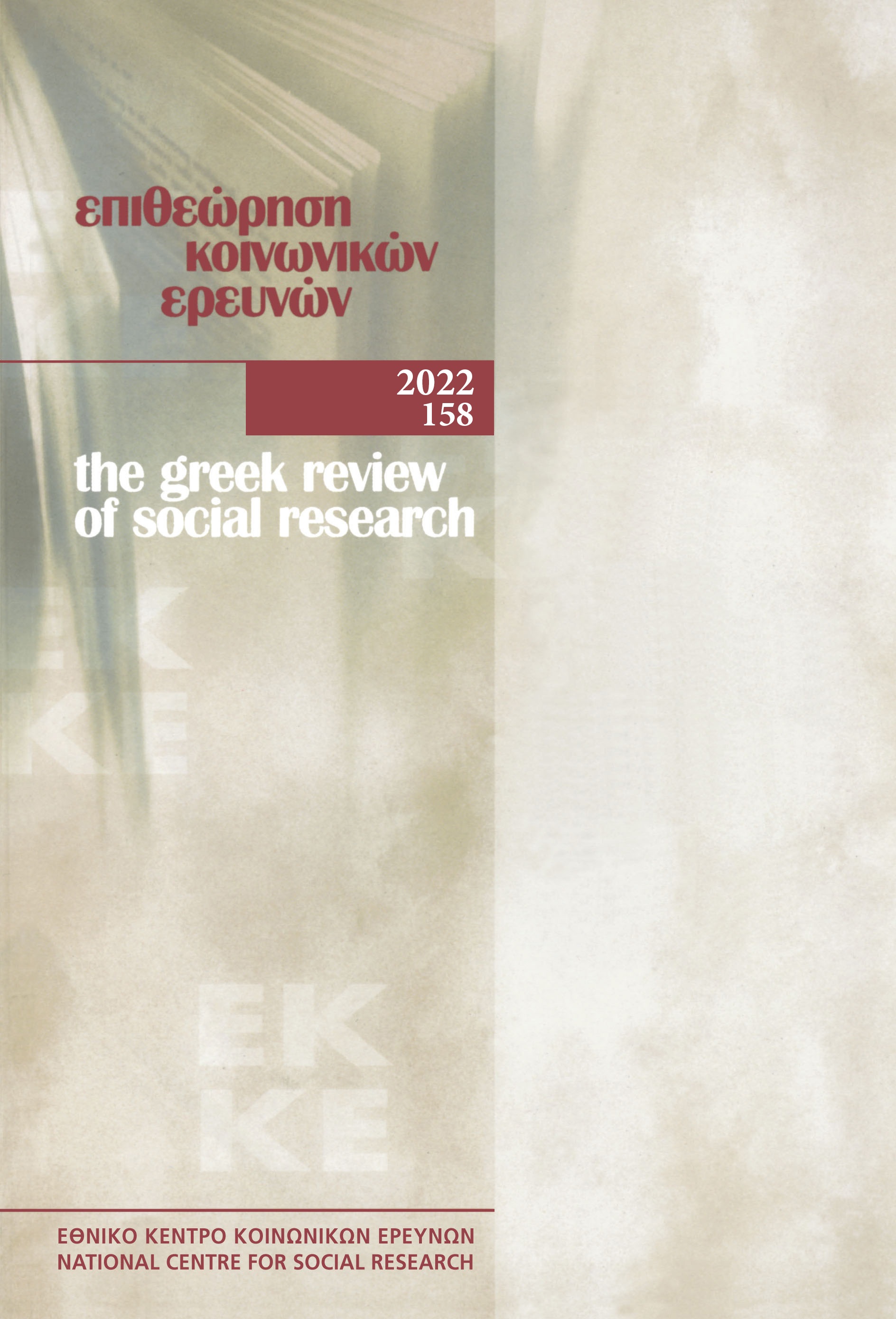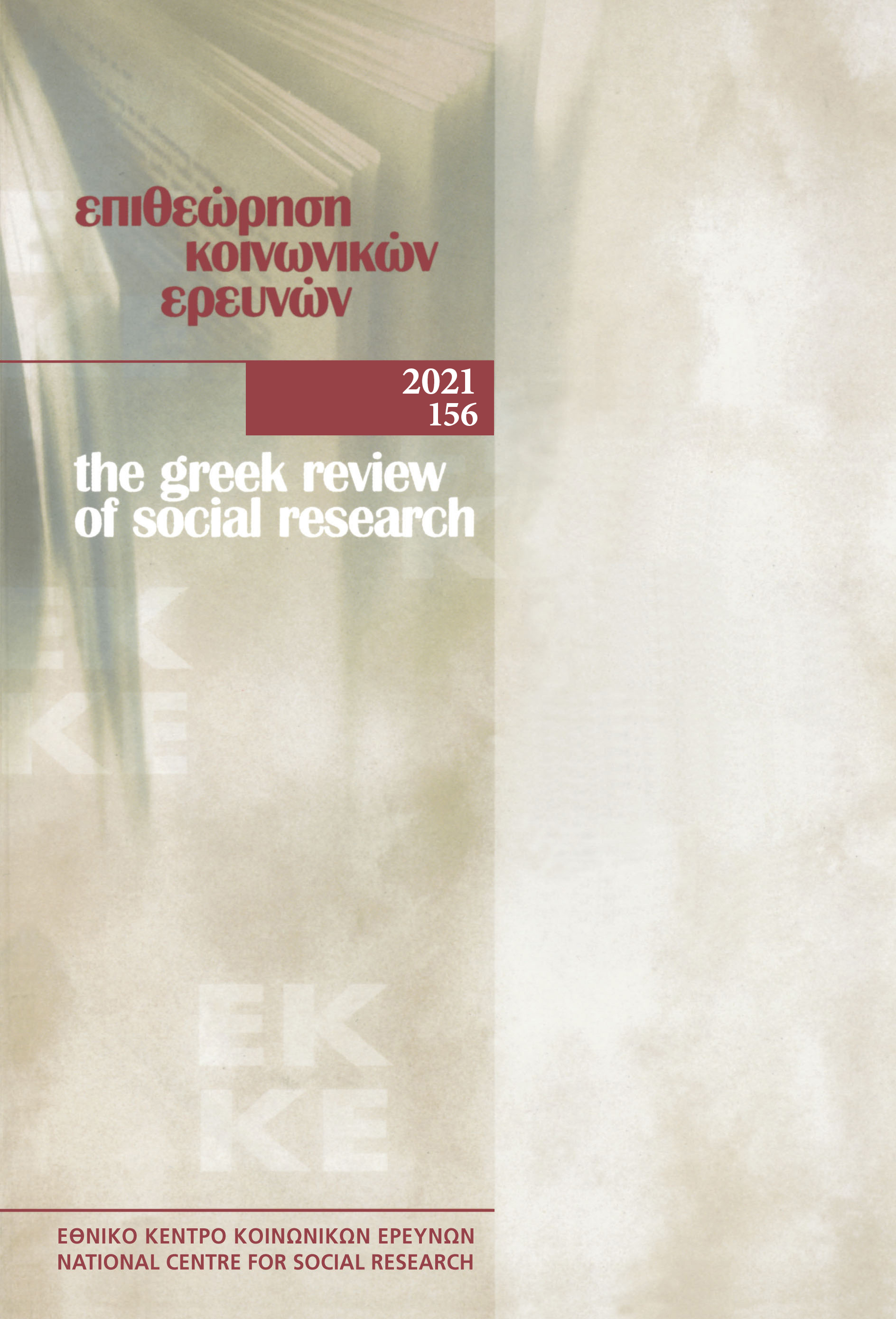Inscribing identities on/of space: representations and symbolic connotations of space in the collective memory of Greeks from Egypt

Abstract
The article focuses on the articulation of discourses as regards the presence of Greeks in modern Egypt. It stresses the importance of space -and its representations in memory- as a foundational element of the Greek community’s collective identity and symbolic standing in the course of time. The article also highlights the significance of individual memories and specific patterns of virtual interaction as indicators of persistent interpretative stereotypes that support the imaginary restructuring of the community, following its members’ departure from Egypt.
Article Details
- How to Cite
-
Souyioultzoglou, I. (2022). Inscribing identities on/of space: representations and symbolic connotations of space in the collective memory of Greeks from Egypt. The Greek Review of Social Research, 158, 67–96. https://doi.org/10.12681/grsr.29386
- Issue
- 2022: 158
- Section
- Articles

This work is licensed under a Creative Commons Attribution-NonCommercial 4.0 International License.
Authors who publish with this journal agree to the following terms:
- Authors retain copyright and grant the journal right of first publication with the work simultaneously licensed under a Creative Commons Attribution Non-Commercial License that allows others to share the work with an acknowledgement of the work's authorship and initial publication in this journal.
- Authors are able to enter into separate, additional contractual arrangements for the non-exclusive distribution of the journal's published version of the work (e.g. post it to an institutional repository or publish it in a book), with an acknowledgement of its initial publication in this journal.
- Authors are permitted and encouraged to post their work online (preferably in institutional repositories or on their website) prior to and during the submission process, as it can lead to productive exchanges, as well as earlier and greater citation of published work (See The Effect of Open Access).



